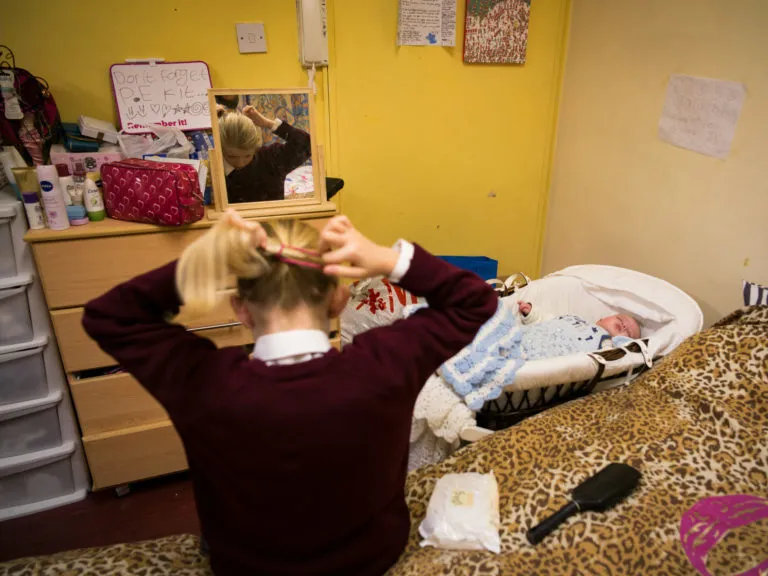The minister doesn’t know what’s causing homelessness. We’re happy to explain
Published: by Heather Spurr

Homelessness Minister Heather Wheeler attracted attention over the weekend for saying she doesn’t know why rough sleeping is rising.
We have front-line homelessness services across the country and are happy to help the minister understand why.
From our point of view, homelessness isn’t that complicated. Time and again we see the same patterns and themes pushing people into homelessness and through the doors of our services.
First, the facts. Since 2010, all forms of homelessness have gone up in England. Rough sleeping has more than doubled to over 4,000. The number of homeless households living in temporary accommodation has risen by 65% to more than 79,000. And those being evicted from their privately rented home have soared; now representing more than one quarter of all homelessness acceptances.
Millions waiting but fewer social homes
Firstly, the minister is right in saying that a lot of this comes down to the supply of genuinely affordable housing. We currently have 1.2 million households waiting for a social home on council waiting lists. We desperately need at least 300,000 new homes to be built annually across England, 50% of which should be affordable.
But the number of social homes being built fell dramatically to just 5,380 in 2016/17, down from 39,560 in 2010/11. This is largely because all grants for new social rent homes were cut in 2010, with money channeled to Affordable Rent homes with rents far beyond the reach of many low-income families’ means. The recent money announced for social housing is welcome but only goes a small way to replacing what was cut.
Welfare cuts make housing unaffordable
No less important have been the multiple cuts to the housing safety net, especially housing benefit. The causal link between these reductions – meaning housing benefit is now misaligned with local private rents – and rising homelessness, is inescapable. Our research shows that by 2020, four-fifths (83%) of England will be unaffordable to private tenants claiming housing benefit.
Councils have also suffered massive reductions in their funding, which have led to the decline in things like the Supporting People programme, aimed at helping vulnerable adults live independently. Moreover, new government plans for the funding of hostels and refuges could put this vital accommodation at risk.
It is increasingly obvious that the government’s priorities on welfare (continuing real-terms cuts) and homelessness (attempting to reduce it) are incompatible. Last year, the National Audit Office said cuts to housing benefit were a likely contributor to homelessness. It also criticised the government for not evaluating the impact of its welfare reforms on homelessness.
A vital time to understand
It is even more important for the new minister to understand this because this April will see the introduction of significant homelessness legislation. The Homelessness Reduction Act places more legal duties on local authorities to prevent homelessness, regardless of their ‘priority need’ category. Local authorities will likely have higher caseloads, but no more affordable homes to house people in.
Without an understanding of the structural causes of homelessness, government initiatives like the Homelessness Reduction Act risk falling flat.
It is increasingly implausible for ministers not to know why homelessness and rough sleeping is rising. The answers are there. The evidence is there. What is missing is the action needed to solve the problem.
- Visit our website to read about how we campaign to tackle the causes of the housing crisis.